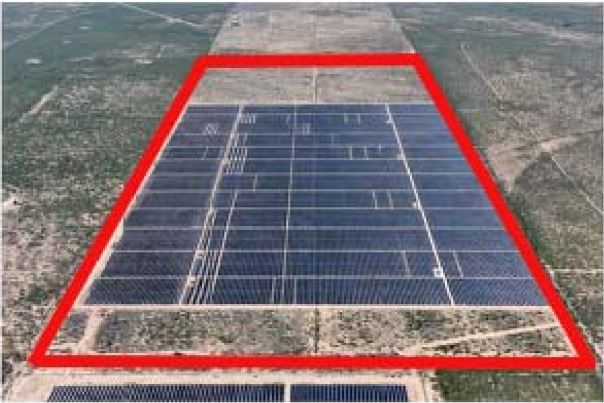The El Paso Court of Appeals tangled with the accommodation doctrine in Lyle v. Midway Solar, LLC, No. 08-19-00216-CV, and the mineral owner lost.
The Lyles own a 27.5% mineral interest in 315 acres in Pecos County. Gary Drgac owns the surface. Drgac leased the 315 acres to Midway Solar for a solar farm. Midway constructed its solar array, leaving 17 acres on the south end and 80 acres on the north end for “Designated Drill Sites.” Midway did not get a surface waiver from the Lyles. The solar array covers 70% of the surface above the Lyles’ mineral estate.
 The Lyles sued Midway for trespass and breach of contract. The breach of contract claim was based on the language in the deed that reserved the mineral interest owned by the Lyles. It provided that the Grantors reserve “the right to such use of the surface estate in the lands as may be usual, necessary or convenient in the use and enjoyment of the oil, gas and general mineral estate ….” It also provided that Grantors would never be liable to Grantees for any damage or injury to the surface estate by reason of such use. The trespass claim was based on the theory that Midway’s use deprived the Lyles of the right to use the land under its solar array and therefore trespassed on the Lyle’s right to use the surface estate of that land.
The Lyles sued Midway for trespass and breach of contract. The breach of contract claim was based on the language in the deed that reserved the mineral interest owned by the Lyles. It provided that the Grantors reserve “the right to such use of the surface estate in the lands as may be usual, necessary or convenient in the use and enjoyment of the oil, gas and general mineral estate ….” It also provided that Grantors would never be liable to Grantees for any damage or injury to the surface estate by reason of such use. The trespass claim was based on the theory that Midway’s use deprived the Lyles of the right to use the land under its solar array and therefore trespassed on the Lyle’s right to use the surface estate of that land.
The evidence showed that the Lyles have not actively sought to develop their minerals and have no plans to do so. But the Lyles introduced affidavits of two petroleum engineers to the effect that directional drilling to develop the Lyles’ minerals would be “a significant deterrent to anyone developing the minerals under the solar operations” and does not allow reasonable access to their mineral estate.
Midway argued that, until the Lyles seek to develop their mineral estate, their claims are not ripe for review and should be dismissed.
The court agreed with Midway and ordered that the Lyles’ claims be dismissed without prejudice. The court provides an extended discussion of the accommodation doctrine and holds that the language in the Lyles’ deed does not preclude application of the doctrine, should a controversy arise about the Lyles’ right to use the surface estate.
If the Lyles exercise their right [to use the surface] as part of developing the minerals, Midway must yield to the degree mandated by the application of the accommodation doctrine. But if the Lyles are not exercising their right, there is nothing to be accommodated. Stated otherwise, until the Lyles seek to develop their minerals, Midway owes no duty to the Lyles respecting the surface usage. Were it otherwise a mineral owners who undertakes no efforts to develop the mineral estate could claim damages from any surface activities that might hinder—at some point in the future—the exploration for oil and gas.
In my experience solar developers generally do get surface waivers from mineral owners. It appears that Midway did seek to do so but apparently obtained waivers from mineral owners of other tracts, but not the Lyles, because of poor title work. I doubt that this opinion will give solar developers and their lenders much comfort to develop solar farms without surface waivers from mineral owners. If the Lyles had received any lease offer that was conditioned on obtaining drillsites within the solar array, the case might have turned out differently.
 Oil and Gas Lawyer Blog
Oil and Gas Lawyer Blog


